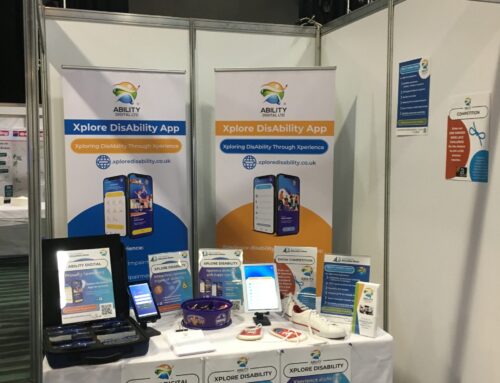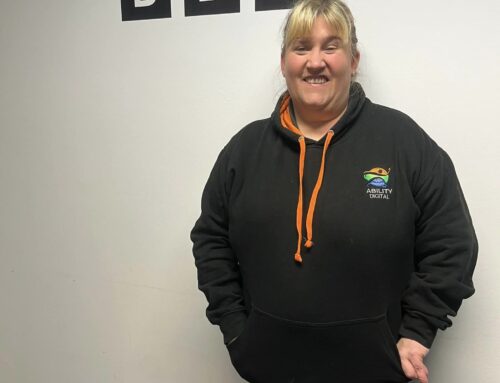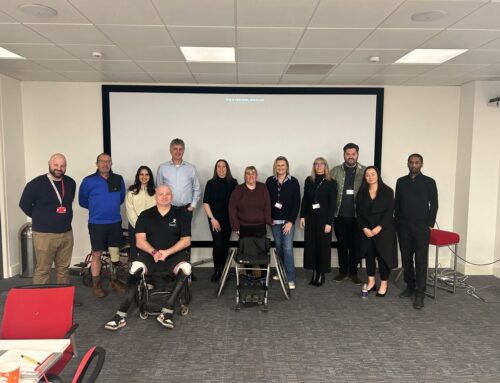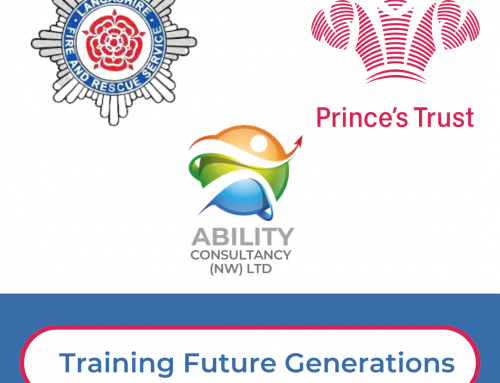
The quality of physical education (PE) in primary and secondary schools in England, was the subject of an Ofsted report, published recently. Whilst the report’s findings seem encouraging, if you read the report carefully, which we have, as a team invested in education, sport and all matters relating to people with disabilities, you will find there is considerably more work to be done.
We understand the challenges for schools and teachers, with time and budget constraints, but we also know how truly life-changing it can be when PE and particularly inclusive PE sessions, are embraced from an early age. Ability Consultancy’s core services are focused on disability inclusion (within PE, schools, and workplaces), and training and development for all school staff and PE teachers.
Why do we care so much about disability inclusion in schools?
PE was a lifeline for the founder of Ability Consultancy, because it was through sport, that Claire Buckle found a true passion and an escape from the bullying she faced at school due to her disabilities. Claire went on to become a successful para-athlete in Shot Put and Discus, then became a coach, a tutor, and a classifier. When Claire set up Ability Consultancy after retiring from professional sport, it was her mission to give other disabled children the opportunities sport had given her, and the reason that she developed the “See Me, Not My CP” programme for schools (to read more about the programme, click here).
The importance of PE in school
As His Majesty’s Chief Inspector, Amanda Spielman, said in the report,
“PE is so important for children to develop an understanding of how movement contributes to a healthy, active lifestyle. It’s great that most schools allow enough time for children to be physically active.”
Therefore, it is then disappointing to read that:
- “Only a small number of schools have a clearly defined and broad PE curriculum.”
- “Many schools do not match the ambition of the national curriculum.”
Findings for pupils with special educational needs and/or disabilities (SEND)
From a SEND perspective, the findings are also mixed,
- “Pupils with special educational needs and/or disabilities (SEND) are supported to achieve well in PE in just over half of the schools.”
It is fantastic of course to read the success stories and to hear that in half of the 25 primary schools and 25 secondary schools the PE offering is up to standard.
In these schools, the report credits the success with the following:
- “the curriculum end points are clearly defined and ambitious for all.”
- “staff (including teaching assistants (TAs) and unqualified staff teaching PE) are well trained and supported to implement specific strategies for pupils with SEND.”
- “staff have clear, specific and actionable information to support them in meeting the pupils’ needs in a PE setting.”
However, this leaves the other 25 schools in total, which are not matching the required standard and not giving the pupils the support they need to succeed, in school and in life.
Report Recommendations
The report outlines that schools under performing in PE should:
- “Support pupils with SEND effectively so that they can access an ambitious curriculum and achieve well. This includes ensuring that staff are well trained to provide precise support so that all pupils can meet clear and ambitious end points.”
In addition, policy leaders should:
- “Support schools to provide professional development opportunities that are meaningfully informed by school leaders’ evaluations of pupils’ attainment. This includes ensuring that staff have the subject knowledge and pedagogical content knowledge to teach FMS effectively, efficiently assess pupils’ progress in PE, and help all pupils with SEND to achieve ambitious curricular goals.”
How to improve PE in schools
Ability Consultancy can cost effectively support schools, in line with the Ofsted framework, to help teachers ensure that pupils receive a high-quality, inclusive PE education.
It seems from the report that many staff have the subject knowledge to provide effective explanations and demonstrations, but that it is not quickly adapted in response to pupils’ gaps in knowledge.
“In particular, for pupils with SEND, the quality of support they receive to enable them to participate fully is often not precise enough nor having the impact intended. For example, in some schools, some pupils with SEND are not well supported to develop high quality movement patterns before moving on to be taught more complex knowledge”.
Our online and CPD accredited Disability Awareness in Sport training course would be hugely beneficial and cost effective in this instance, for all staff not just PE teachers, also for teaching assistants (TAs) and Special Educational Needs Co-ordinators (SENCOs). The course can be easily and quickly downloaded for only £49.99 for a single person, with discounts available for bulk purchases (contact us on support@ability-consultancy.co.uk to discuss course bookings).
Disability Awareness in Sport Training Course
The Disability Awareness in Sport Training Course introduces school staff to some of the simple approaches you can use to make PE lessons inclusive, accessible, and fun for all. It has been developed by a deliverer that has worked in Para sport for over 20 years. Claire shares with you some of her challenges and experiences, showing you what is possible with a little trial and error and some fun along the way. The course will give you the confidence to deliver accessible sports lessons and gives a refreshingly honest overview of the STEP (Space, Task, Equipment and People) model and the Inclusion Model.
As Claire Buckle, Director of Ability Consultancy points out,
“An inclusive PE experience is so important. You never know – you could have a future Paralympian in your school!”
We also offer a variety of other online training courses, including the popular Disability Awareness training course and in-school services such as; class assemblies and inclusive PE practical sessions. For more information about our Education services, please see our website Education page by clicking here.
#InclusivePE #Ofsted #STEP # InclusionModel #DisAbilityAwareness #DisabilityInSport #DisAbilityAcceptance #DisabilityInclusion #AbilityinDisAbility #Education




